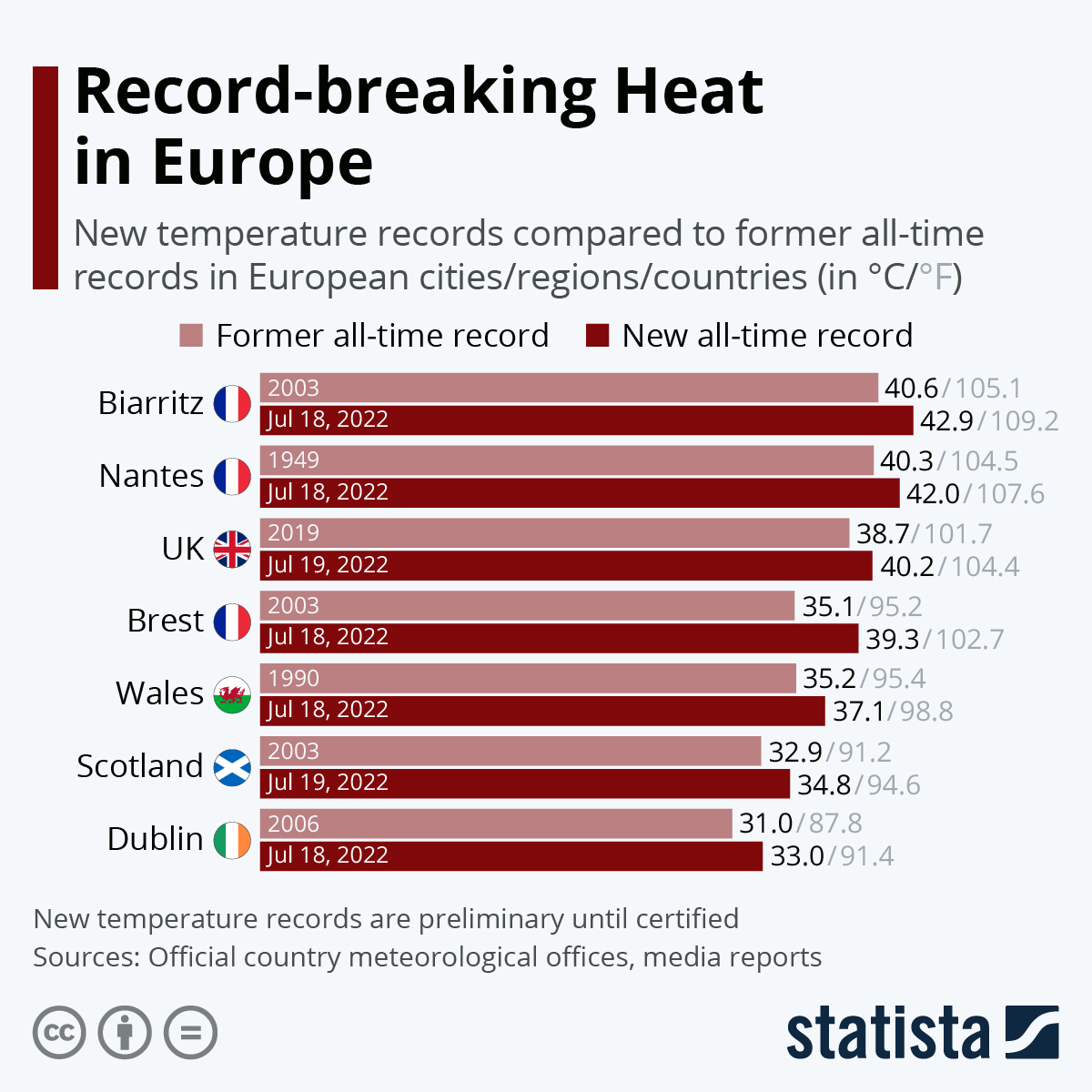A three-day heatwave is rolling across Europe, breaking temperature records in its path. The heat has been topping 40°C (104°F) in several places, which is unusual for the more temperate regions it is hitting across Northern France, the Benelux, North and Central Germany as well as the British Isles.
All-time temperature records fell yesterday in Northern French cities Brest and Nantes as well as in Biarritz on the French Atlantic Coast, with the new highs exceeding old records by several degrees each. New all-time heat records in Nantes and Biarritz are at or above 42°C (107.6°F). Wales set a new all-time record when the thermometer hit 37.1°C (98.8°F) in Flintshire near Liverpool. In Irish capital Dublin, 33°C (91.4°F) were measured, 2°C above the old record of 31°C (87.8°F).
Today, the all-time countrywide heat record in the UK fell as temperatures around 40°C were recorded in Southern England. Cambridge had seen the UK’s previously highest temperature of 38.7°C (101.7°F) in 2019 and it will be clearer in the afternoon which place will set the new record. As of 2 p.m. GMT, Heathrow was in the lead at a recorded temperature of 40.2°C (104.4°F). Cambridge’s city-wide record was also broken when a temperature of 39.1°C (102.4°F) was recorded.
As the heat is moving East, forecasts in the Benelux countries and in Western Germany have been revised down to the high 30s, with no new records expected for now. When the high temperatures hit Eastern Germany on Wednesday, the Berlin heat record could be surpassed at the Dahlem station, which is the city’s non-airfield station. The previous temperature record there is 37.9°C (100.2°F), but Wednesday heat is expected to hit 39°C (102.2°F) throughout the city.
also read
Viral video of Italian nun in Naples separating two female models kissing
Meanwhile, Southern Europe is also experiencing extreme heat that has caused wildfires. While records have stayed intact this July, one more city-wide all-time record already fell in June when Rome reached 40.3°C (105.4°F).
While fluctuating temperatures and very hot or very cold days are a normal phenomenon, extreme weather events are expected to become more frequent due to climate change, which is the increase of global average and mean land and ocean temperatures. According to Friederike Otto, acting director at the Environmental Change Institute at Oxford University, the likelihood of heatwaves in southern Europe is already 10 times higher than it was in pre-industrial times.
You will find more infographics at Statista
Ask me anything
Explore related questions






